Key takeaways:
- Anticipating crises and having a communication plan in place is essential for effective brand crisis management.
- Brand reputation is fragile and crucial; consumer trust can change rapidly based on a brand’s actions.
- Transparency and timely communication during a crisis can rebuild trust and foster stronger relationships with consumers.
- Learning from crises involves adaptability, empathy, and viewing setbacks as opportunities for growth.
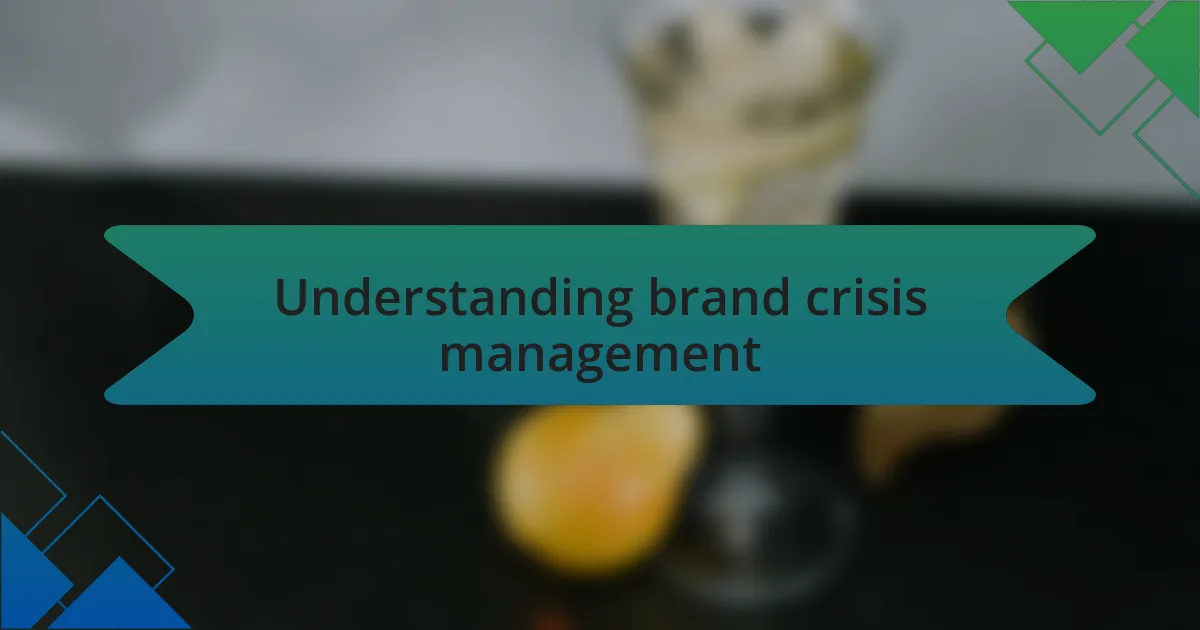
Understanding brand crisis management
Brand crisis management is not just about reacting to a situation; it’s about anticipating potential pitfalls and preparing to handle them with grace. I remember when our distillery faced backlash over a controversial ad campaign. At that moment, it really struck me how crucial it is to have a plan in place before trouble arises. Are we ever truly ready for a crisis, or do we simply learn as we go?
One essential aspect of crisis management is communication. I once experienced firsthand the impact of addressing an issue promptly. When negative feedback erupted online, we chose transparency, openly discussing our missteps and outlining our corrective actions. This approach not only quelled the immediate backlash but also built a stronger relationship with our audience. Have you thought about how honesty can sometimes be the best first step?
Furthermore, I’ve learned the importance of internal alignment during a crisis. During another challenge, our team was initially divided on how to respond, leading to mixed messages that confused our customers. It was a wake-up call for me to realize that a united front can make all the difference in rebuilding trust. Isn’t it fascinating how the strength of a brand is often tested in times of adversity?
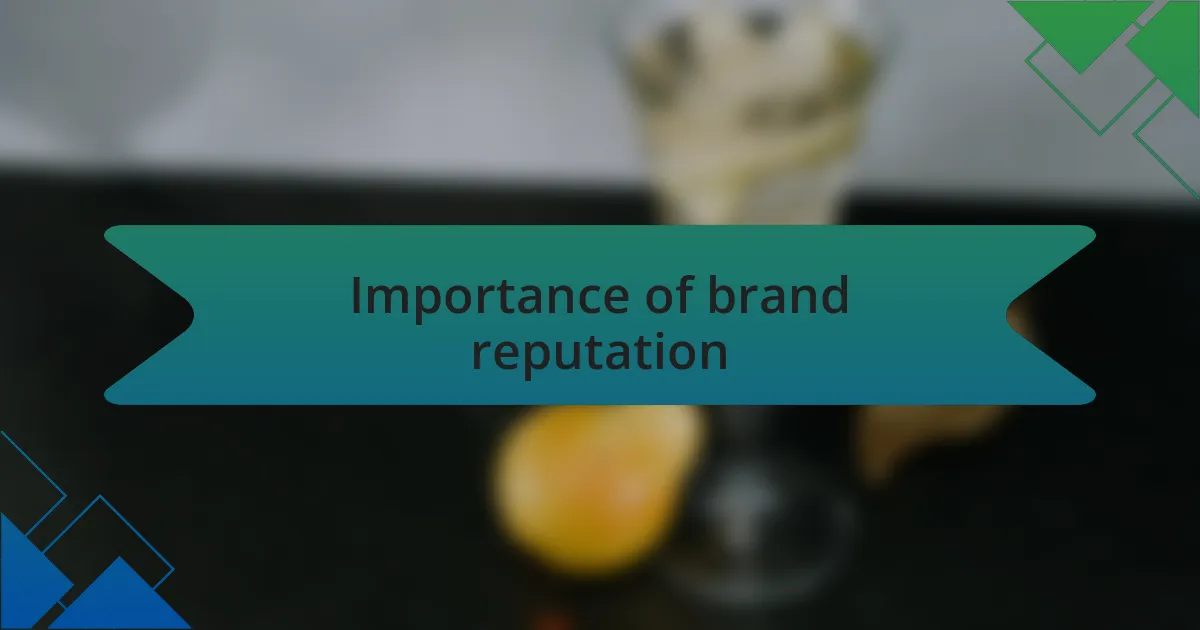
Importance of brand reputation
One of the most valuable lessons I’ve learned is that brand reputation is a fragile entity. I recall the nerve-racking moments when our gin brand faced critique because of a single, poorly-received release. That experience taught me that consumers’ perceptions can shift overnight, reshaping how they view not just specific products, but the entire brand. Do you ever wonder how quickly trust can be built or dismantled?
Beyond immediate sales, a strong reputation provides a safety net during crises. When we launched our recovery campaign, I was pleasantly surprised to see how our loyal customers rallied behind us. It was a powerful reminder that a robust reputation fosters community, allowing brands to weather storms more effectively. Have you noticed how often loyalty is intertwined with reputation, especially in the gin market?
Moreover, I’ve realized that a brand’s reputation is often its most valuable asset. As I navigated through various challenges, feedback from our customers became the compass guiding our responses and strategies. This two-way street of communication not only enhanced our offerings but also reaffirmed our commitment to quality and customer care. Isn’t it fascinating how listening can revive a brand and turn setbacks into opportunities?
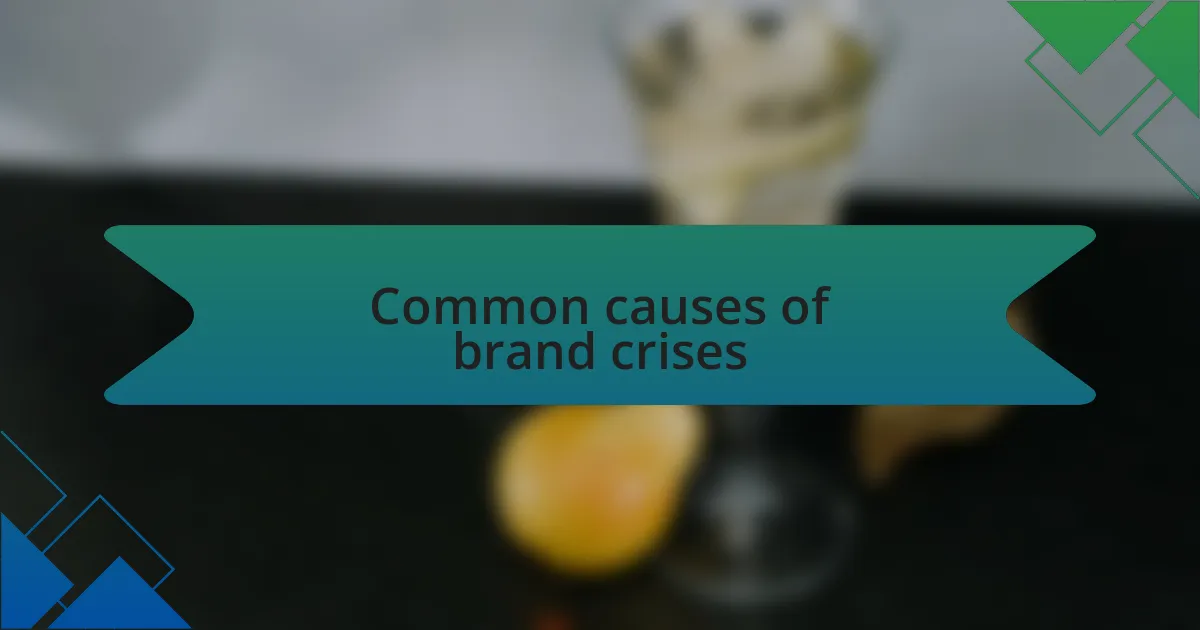
Common causes of brand crises
One common cause of brand crises stems from miscommunication or lack of transparency. I remember a time when we launched a limited-edition gin without adequately informing our consumers about the sourcing of its ingredients. The backlash was swift, as customers felt they were misled. Have you experienced a moment where a lack of clarity led to confusion or distrust? Brands must recognize that honesty is paramount; even a small oversight can lead to significant trust issues.
Another issue often lies in social media missteps. Once, during a promotional campaign, we misused a hashtag that was controversial in the broader context. The instant backlash was a stark reminder of the power and reach of social media. Have you ever considered how quickly a single tweet can spiral out of control? It serves as a valuable lesson: brands need to approach social media with caution, ensuring their message aligns with the values of their audience.
Finally, inconsistent brand messaging can trigger a crisis that erodes consumer confidence. I’ve seen brands promise premium quality yet deliver something that doesn’t measure up. That disconnect can create a sense of betrayal among customers. Isn’t it intriguing how closely consumers pay attention to brand promises? When a brand fails to align its messaging with its actions, it risks losing the very trust it worked so hard to build.
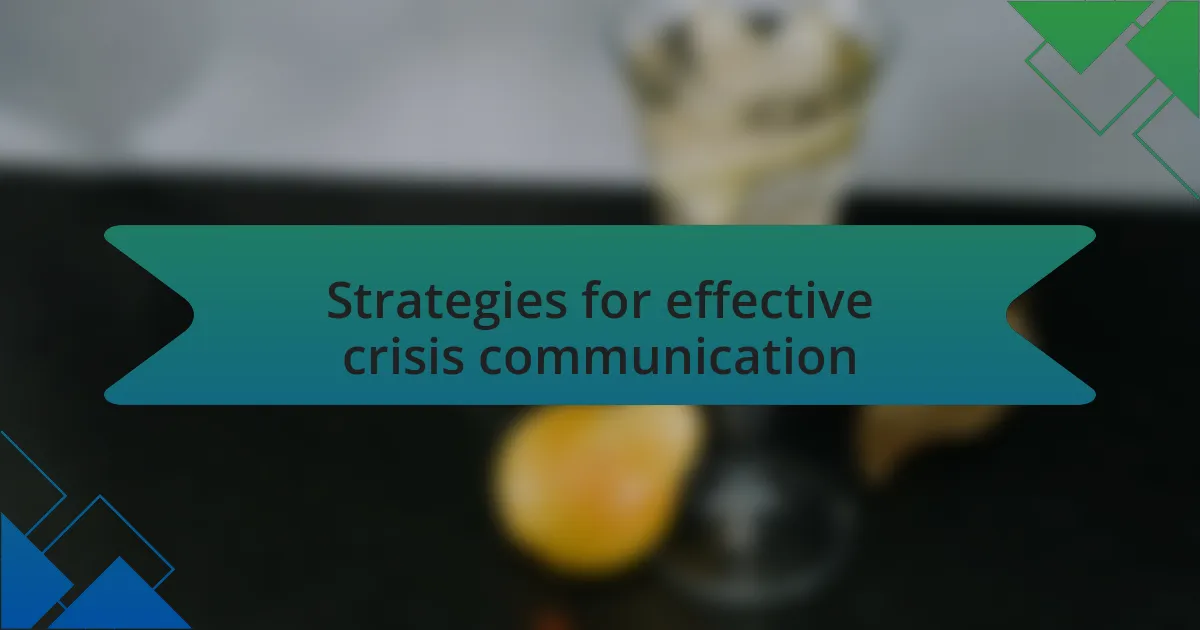
Strategies for effective crisis communication
Effective crisis communication requires a well-thought-out approach, focusing on timely responses. In my experience, when a crisis hits, it’s crucial to acknowledge the issue immediately. I recall a situation where we faced criticism after a promotional event misrepresented our gin’s unique qualities. We quickly addressed the concerns in a clear statement on social media, allowing our audience to see that we were actively listening. Have you noticed how swift action can transform potential chaos into constructive dialogue?
Transparency plays a vital role in rebuilding trust during a crisis. In one instance, after receiving negative feedback about our ingredient sourcing, we invited customers into our process. We shared behind-the-scenes footage of our distillation methods and ingredient origins. This not only mitigated the backlash but also made our consumers feel valued and included in our brand story. Don’t you agree that people appreciate when brands are genuine and open about their practices?
Lastly, it’s essential to keep the communication channels open long after the immediate crisis has passed. Following a public relations challenge, I ensured we engaged with our audience through Q&A sessions and feedback forms. This ongoing dialogue demonstrated that we were committed to improvement. Have you ever felt more connected to a brand when they reached out post-crisis? Maintaining that connection lends credibility and fosters a sense of community that can ultimately strengthen brand loyalty.
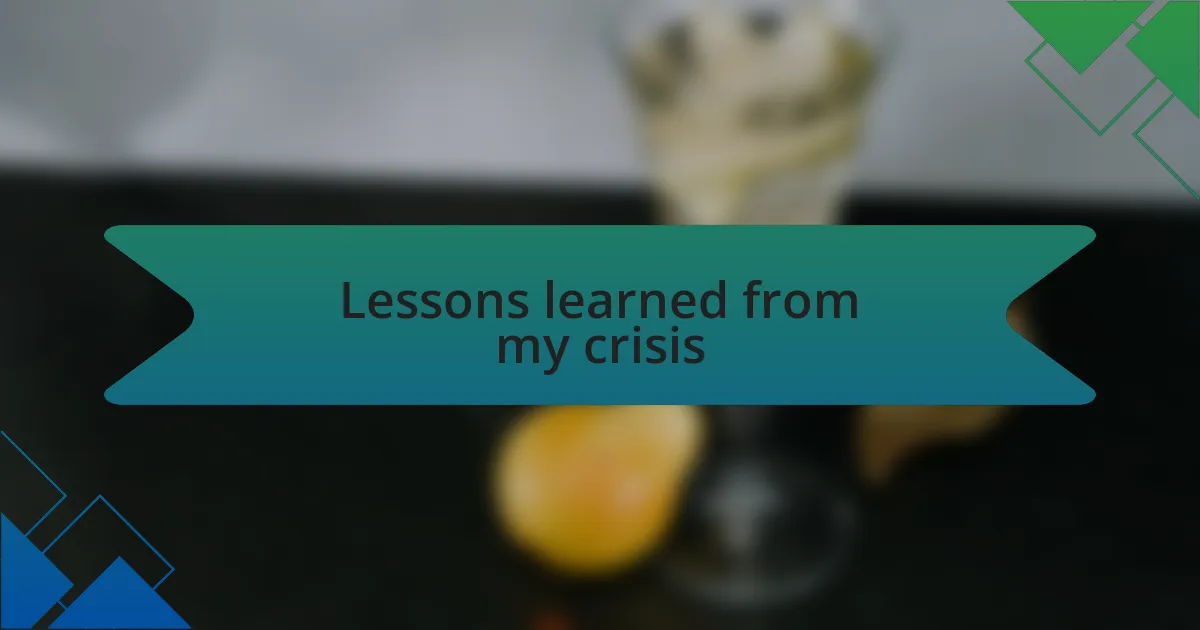
Lessons learned from my crisis
Navigating a brand crisis taught me the importance of adaptability. I remember a time when our social media strategy failed dramatically during a product launch. Instead of doubling down on our initial approach, I encouraged my team to pivot quickly. This shift not only salvaged our promotional efforts but also proved that being flexible in response to feedback can resonate with our audience. Isn’t it fascinating how quickly we can turn setbacks into opportunities?
Another lesson centered around the power of empathy. During a particularly challenging moment, a loyal customer reached out in distress, feeling misled about a new flavor we introduced. I took the time to personally respond to her message, acknowledging her feelings and offering a sincere apology. I realized then that showing genuine concern can create a deep emotional connection. Haven’t you ever felt a brand was more relatable when they recognized your emotions?
Ultimately, I learned that every crisis carries a lesson, waiting to be uncovered. Reflecting on my experiences, I found that embracing the discomfort can lead to growth, not just for the brand but for myself as well. Transformation often comes from vulnerability. Have you ever looked back at a difficult situation and found it to be a pivotal moment in your journey?